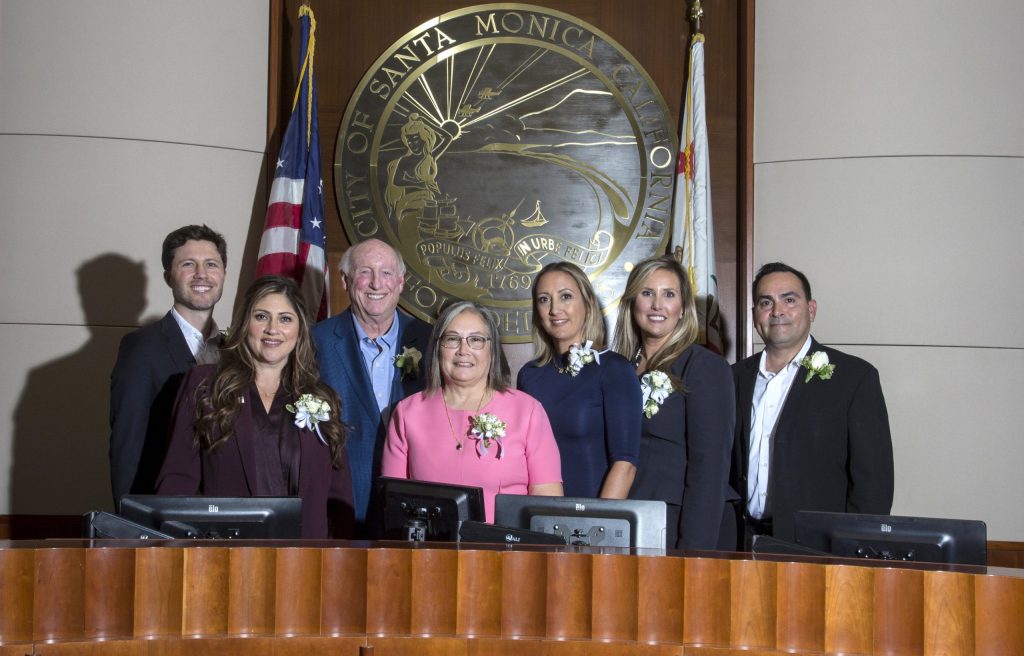Tuesday's city council meeting took an unexpected turn when the seemingly administrative task of approving the 2023-24 half-year budget was derailed by council members' travel allowances.
A proposal to increase travel allowances caused a division among council members, leading to a number of counterproposals, further votes and general confusion before arriving at a proposal that did not technically increase expenses of travel but increases the amount of money available to pay for the trip.
The debate took place at the end of an item that some suspected would be controversial, although for a different reason: increasing salaries for city staff. Although the first problem was largely overlooked, it was not ignored by Santa Monica residents.
Ericka Lesley, chair of the Rent Control Board and DTSM Inc. board member, expressed these concerns succinctly, saying, “Simply put…there should be no raise for anyone. We must rehire some of the 400 people laid off before Covid. We need more staff in our housing services to relieve some of our overworked and overwhelmed staff.
Although the city projects a balanced budget with modest increases over time, reserves remain well below pre-pandemic levels and future challenges preclude any new spending.
From the beginning, Oscar Santiago, director of the Santa Monica financial department, emphasized the uncertainty of the current economic situation. “We should talk about the climate in which we operate, which continues to be volatile and uncertain. We have done our best to take these external issues into account in our forecasts.
Santiago predicted that tourism would return to pre-pandemic levels in less than two years.
“Our tourism sector is recovering, but we have not yet seen a strong comeback in business, group and international travel. Santa Monica Travel and Tourism forecasts stronger growth starting in mid-2024 and reaching peak 2019 levels by late 2025, early 2026,” he said.
Both the pandemic and recent court cases, in particular Eric Uller settlement, had a significant impact on the city's budget, he said. “At the end of the last fiscal year, we estimated that the General Fund had lost more than $170 million in revenue due to the pandemic. During this time, the city also paid more than $229.8 million in settlements of sexual abuse claims,” Santiago said.
Finally, Councilor Oscar de la Torre brought the topic of discussion back to the issue of salaries by asking: “(About) the resolution regarding salary rates and new classifications, we received emails, residents were concerned that some of these adjustments are potentially excessive, and I just wanted to clarify that our… organization (is) competitive?
The only cities Santiago could name were West Hollywood and Beverly Hills, which he said were comparable. And that was the last mention of the affair.

Councilmember Gleam Davis moved to move the item and approve the FY 23-24 budget with a small but significant amendment.
“One of the recommendations was to increase the council's travel budget by $14,000, which would equate to $2,000 per council member,” Davis said, adding, “I propose that instead of increasing the $14,000 travel budget, we reinvested that $14,000 into the board's travel budget. council discretionary fund, add $1,000 to it and give $5,000 to each business improvement district (BID) so they can build community and promote local businesses.
Chaos ensued and the stage was divided into two distinct camps, neither side willing to give an inch. Four council members (Christine Parra, Phil Brock, Lana Negrete and de la Torre) defended the increase in travel budgets while Davis, Jesse Zwick and Caroline Torose voted to reduce it.
A financial modification relating to a budget item requires a qualified majority of at least five votes to be adopted. There were several variations in the vote, all of which deadlocked along the same lines and the Council remained deadlocked at 4-3 against removing the proposed travel budget increase.
Reiterating his views, Davis said: “As we all know, we had a thorough discussion about our travel budget before the start of the fiscal year. And we all know what our travel budget was. Every time we spend a penny of our travel budget, we all have these sheets that tell us how much money we have left.
Davis was referring to an incident that occurred last year, when Brock and De la Torre requested additional travel expenses for the year. At a municipal council meeting from July 25In 2023, they requested that unused funds from the previous year's travel budget be applied to any Council member who had already exceeded that year's travel budgets. Needless to say, this issue quickly became a political issue, since the subject had never arisen before.
“I just don't know why we would increase (this) budget, when we could use the money for other things, whether it's neighborhood groups (or) sending more kids ( at events). I think the last thing we need to do is give each of us an extra $2,000 to fly or go wherever we think we want to go. I don't think that's a good expense,” said Davis.
As the clock approached midnight, Zwick made a new motion to place the entire $15,000 in the discretionary fund and decide where it will go at a later date. The motion passed unanimously 7-0.
Even though allocating the money to the discretionary fund required five votes, it will only take a simple majority of four votes to decide how the money will be spent. Funds are not earmarked for a specific project and can be used for any purpose, including to pay for travel.


